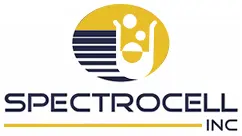If you don’t have a WordPress site, you likely know someone that uses the platform for their website. What started as a blogging platform has now transformed into a popular CMS platform featuring vibrant themes and a plethora of plugins to create a modern-looking website. They’ve even added a plugin for ecommerce. Viewed as cost-effective and easy to use, platforms like WordPress are a draw for those who have limited time or budgets, or who don’t want to bother with transferring content over to a new CMS. And while easy access to a variety of features is convenient, there are some drawbacks to using WordPress and similar website building tools. Here we’ll take a look at some of these issues and how they may impact the speed and functionality of your site, along with SEO.
Understanding Issues with Updates and Security for WordPress Platforms
Aside from price and usability, the availability of plugins for WordPress sites makes it a popular choice for many. But using too many plugins makes your site susceptible to software bugs and other issues, including hackers. A
study was recently conducted by UK-based CyberScanner, and the results are staggering. The company scanned over 103,000 websites—93,000 of which were WordPress and 9,834 WooCommerce—and found that
80 percent contained at least one vulnerability that posed a major security risk. And even though these results are for UK-based businesses, it demonstrates the prevalence of security issues and why it should be a concern among WordPress users. The problem with plugins is that they can make your site vulnerable if they are not regularly updated. This requires regularly checking for updates and installing them as needed, which not everyone does. Updates can also potentially corrupt your website, so you need to take precautions to continually have at least one backup service running so you don’t lose vital content. If you plan to stick with a WordPress site, it is extremely important that your developer is regularly checking for updates and has a sufficient backup plan in place to prevent hacking and website crashes.
Installing Too Many Plugins Slows Down Your Website
We’ve mentioned in
previous blog posts how site speed affects not only UX (user experience), but how your site ranks in major search engines such as Google. Running a site on WordPress requires more server space and resources than other platforms, which can slow down page speed. Utilizing multiple plugins and adding excessive or unnecessary code also contributes to this issue. And all the photos and fun themes? Well, those can slow your site down as well. The combination of factors can significantly impact your download times and harm your search rankings. Instead of upgrading to a more elaborate theme or adding several plugins to get the look you want, you might want to consider hiring a developer to custom build a site that meets your exact requirements. This is especially important for businesses that are running an ecommerce site, where a slow site will cause frustration with customers and potentially result in lost conversions.
Identifying SEO Issues for WordPress
While the platform has an SEO plugin available, it is not very effective for getting an accurate portrayal of how well your site’s pages are optimized for search engines. Writing copy for SEO optimization takes hand-on, in-depth research including keyword research, competitive analysis and monitoring site traffic before and after optimization. That isn’t something you can get from a plugin alone. Read
An Introduction to SEO to learn more about the importance of having an effective SEO program.
Dealing with Technical Troubles
Website creation tools have a wide selection of themes and plugins that you can incorporate into your site with the simple click of the mouse, but you need to make sure they are compatible. If a theme isn’t compatible with a specific plugin or function, it can potentially crash your site. Another issue is that the source code is complex, meaning it can take longer for your developer to implement changes. There is also limited support for technical issues, which can leave you with a site that isn’t working properly.
When It Comes to Website Platforms, Choose Wisely
Generally speaking, there is no right or wrong platform, but the type and size of your website is an extremely critical consideration when choosing a CMS or database. Using a “build-it-yourself” site might seem like an easy and convenient solution in the beginning, but it can potentially cost you more in the long run. By investing in development, you can still build a site that gives you the look you want, but with better functionality and speed —and most importantly, fewer issues. If your finances don’t allow that to happen just yet, make the best of your current site and upgrade to a customized site as soon as you’re able. Need assistance with industrial website development or upgrading your existing design?
Contact Ecreative to learn about our industrial web design and marketing solutions.




